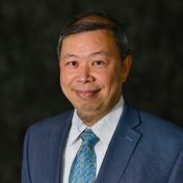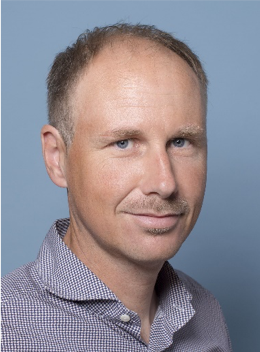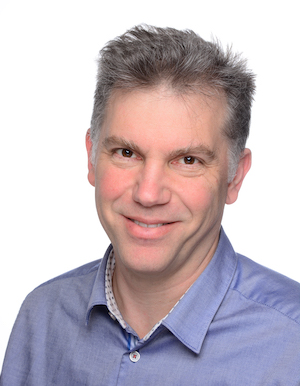Third International Balkan Conference on Communications and Networking
Skopje, North Macedonia, June 10-12, 2019
Third International Balkan Conference on Communications and Networking
Skopje, North Macedonia, June 10-12, 2019
5G and Beyond
Keynote Speakers
Machine Learning Enables uRLLC in Vehicular Networks
 |
Kwang-Cheng Chen Professor, Department of Electrical Engineering |
Abstract
Autonomous vehicles emerge as a critical technology toward digital society. To satisfy the ultimate reliability and safety, ultra-reliable and low latency communication (uRLLC) in vehicular networks warrantees the success of massive operation of autonomous vehicles. By considering multi-scale control, effective cloud computing, edge computing, and on-board computing, a new technological paradigm is required to facilitate smooth real-time functioning to interact with environments and other agents. Based on the proactive open-loop wireless communication and virtual-cell, anticipatory mobility management to predict proactive network association warrantees the realization of uRLLC in vehicular networks. Machine learning techniques fitting mobile networks lead to successful anticipatory mobility management taking processing scenario and data integrity into account, which is further verified using a real-world vehicular dataset. Machine learning indeed enables, not just enhances, future mobile networking technology, and fundamentally suggests new network architecture to incorporate machine learning.
Short Biography
Kwang-Cheng Chen is a Professor at the Department of Electrical Engineering, University of South Florida, since 2016. From 1987 to 2016, Dr. Chen worked with SSE, COMSAT, IBM Thomas J. Watson Research Center, National Tsing Hua University, HP Labs., and National Taiwan University in mobile communications and networks. He founded a wireless IC design company in 2001, which was acquired by MediaTek Inc. in 2004. He has been actively involving in the organization of various IEEE conferences and serving editorships with a few IEEE journals (most recently as a series editor on Data Science and AI for Communications in the IEEE Communications Magazine), together with various IEEE volunteer services including founding the Technical Committee on Social Networks in the IEEE Communications Society. Dr. Chen also has contributed essential technology to various international standards like IEEE 802 wireless LANs, Bluetooth, LTE and LTE-A, and 5G-NR. He has authored and co-authored over 300 IEEE publications, 3 books published by Wiley and River, and more than 23 granted US patents. Dr. Chen is an IEEE Fellow and has received a number of awards including 2011 IEEE COMSOC WTC Recognition Award, 2014 IEEE Jack Neubauer Memorial Award, 2014 IEEE COMSOC AP Outstanding Paper Award. Dr. Chen’s current research interests include wireless networks, artificial intelligence and machine learning, IoT/CPS, social networks and data analytics, and cybersecurity.
Graph Signal Processing: Connections to Distributed Optimization and Deep Learning
 |
Geert Leus Professor, Professor, Circuits and Systems (CAS), Department of Microelectronics, TU Delft, The Netherlands |
Abstract
One of the cornerstones of the field of graph signal processing are graph filters, direct analogues of time-domain filters, but intended for signals defined on graphs. In this talk, we give an overview of the graph filtering problem. More specifically, we look at the family of finite impulse response (FIR) and infinite impulse response (IIR) graph filters and show how they can be implemented in a distributed manner. To further limit the communication and computational complexity of such a distributed implementation, we also generalize the state-of-the-art distributed graph filters to filters whose weights show a dependency on the nodes sharing information. These so-called edge-variant graph filters yield significant benefits in terms of filter order reduction and can be used for solving specific distributed optimization problems with an extremely fast convergence. Finally, we will overview how graph filters can be used in deep learning applications involving data sets with an irregular structure. Different types of graph filters can be used in the convolution step of graph convolutional networks leading to different trade-offs in performance and complexity. The numerical results pre sented in this talk illustrate the potential of graph filters in distributed optimization and deep learning.
Short Biography
Geert Leus received the M.Sc. and Ph.D. degree in Electrical Engineering from the KU Leuven, Belgium, in June 1996 and May 2000, respectively. Geert Leus is now an "Antoni van Leeuwenhoek" Full Professor at the Faculty of Electrical Engineering, Mathematics and Computer Science of the Delft University of Technology, The Netherlands. His research interests are in the broad area of signal processing, with a specific focus on wireless communications, array processing, sensor networks, and graph signal processing. Geert Leus received a 2002 IEEE Signal Processing Society Young Author Best Paper Award and a 2005 IEEE Signal Processing Society Best Paper Award. He is a Fellow of the IEEE and a Fellow of EURASIP. Geert Leus was a Member-at-Large of the Board of Governors of the IEEE Signal Processing Society, the Chair of the IEEE Signal Processing for Communications and Networking Technical Committee, a Member of the IEEE Sensor Array and Multichannel Technical Committee, and the Editor in Chief of the EURASIP Journal on Advances in Signal Processing. He was also on the Editorial Boards of the IEEE Transactions on Signal Processing, the IEEE Transactions on Wireless Communications, the IEEE Signal Processing Letters, and the EURASIP Journal on Advances in Signal Processing. Currently, he is the Chair of the EURASIP Special Area Team on Signal Processing for Multisensor Systems, a Member of the IEEE Signal Processing Theory and Methods Technical Committee, a Member of the IEEE Big Data Special Interest Group, an Associate Editor of Foundations and Trends in Signal Processing, and the Editor in Chief of EURASIP Signal Processing.
Load Modulated Antenna Arrays:
Digital RF Beyond the PA
 |
Ralf R. Müller Professor, Department Elektrotechnik-Elektronik-Informationstechnik (EEI), Friedrich-Alexander Universität Erlangen-Nürnberg, Germany |
Abstract
Multiantenna transmitters are commonly associated with many additional complications when it comes to hardware design. Still many antennas, by means of the law of large numbers, allow us to make a virtue out of necessity. Few or even a single power amplifier can drive all antenna elements whose data streams are digitally and independently modulated directly before or even after the antenna connector with the help of digital RF switches directly controlled by baseband circuitry. Digital-to-analog conversion, circuit matching, and mitigation of mutual antenna coupling are subject to optimization by means of real-time signal processing. Error-vector magnitudes are to be measured in terms of the electromagnetic field on air. While load modulated arrays are highly promising for massive MIMO and millimeter wave technology, new technological challenges have to be met: RF-switches must meet the speed and power requirements of modern communication systems. Spectral shaping is a serious challenge and standing waves between various antenna elements must be avoided. This keynote gives an overview of the state-of-the-art of load modulated arrays, in general, and provides partial solutions for some of the main challenges that come with this promising technology.
Short Biography
Ralf R. Müller received the Dipl.-Ing. and Dr.-Ing. degree with distinction from Friedrich-Alexander-Universität (FAU) Erlangen- Nürnberg in 1996 and 1999, respectively. From 2000 to 2004, he directed a research group at The Telecommunications Research Center Vienna in Austria and taught as an adjunct professor at TU Wien. In 2005, he was appointed full professor at the Department of Electronics and Telecommunications at the Norwegian University of Science and Technology in Trondheim, Norway. In 2013, he joined the Institute for Digital Communications at FAU Erlangen-Nürnberg in Erlangen, Germany. He held visiting appointments at Princeton University, US, Institute Eurécom, France, University of Melbourne, Australia, University of Oulu, Finland, National University of Singapore, Babes-Bolyai University, Cluj-Napoca, Romania, Kyoto University, Japan, FAU Erlangen-Nürnberg, Germany, and TU München, Germany. Dr. Müller received the Leonard G. Abraham Prize (jointly with Sergio Verdú) for the paper “Design and analysis of low-complexity interference mitigation on vector channels” from the IEEE Communications Society. He was presented awards by the Vodafone Foundation for Mobile Communications and the German Information Technology Society (ITG). Moreover, he received the ITG award for the paper “A random matrix model for communication via antenna arrays” as well as the Philipp-Reis Award (jointly with Robert Fischer). Dr. Müller served as an associate editor for the IEEE Transactions on Information Theory from 2003 to 2006 and on the executive editorial board of the IEEE Transactions on Wireless Communications from 2014 to 2016.
Conference Series
You are visitor:
since November 10, 2016.